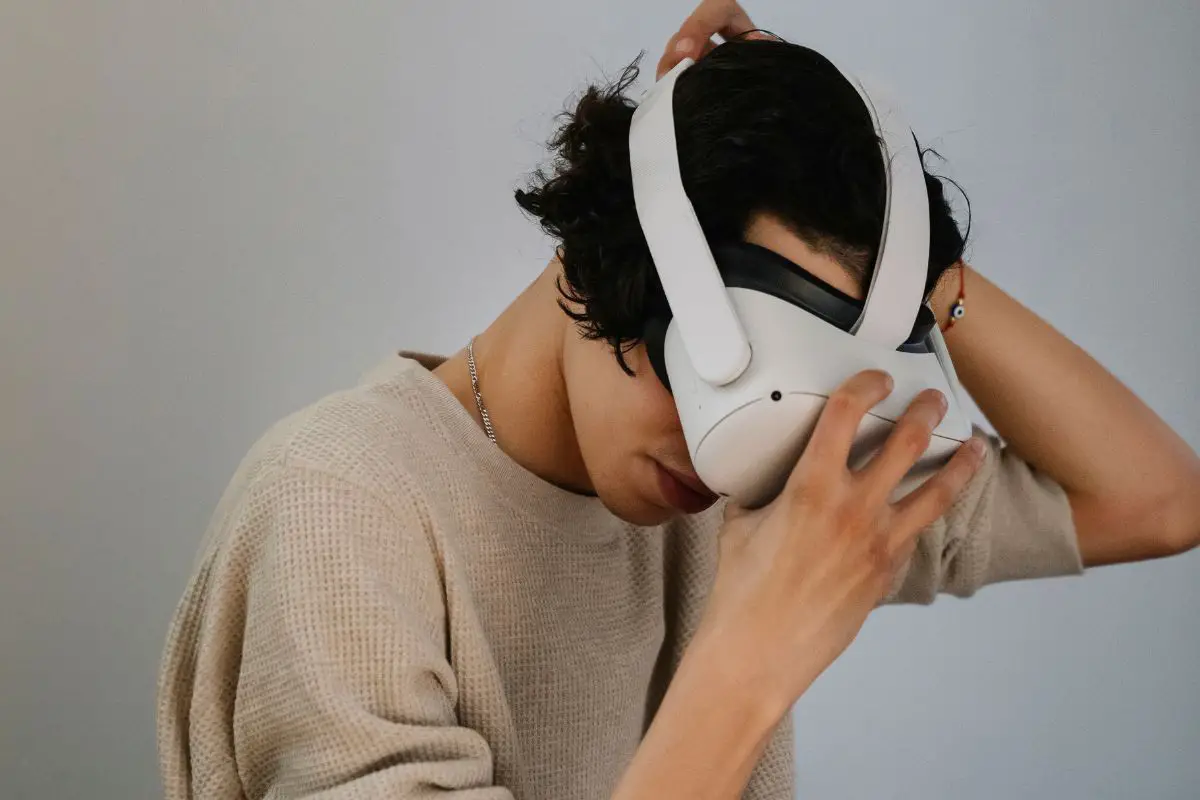Table of Contents
Hey there virtual reality enthusiasts, have you heard the news? The Oculus Quest is no longer just the Oculus Quest, it’s now officially known as the Meta Quest.
*This post may contain affiliate links. As an Amazon Associate we earn from qualifying purchases.
Wait, what? You haven’t heard? Oh, I must have missed the press release. Oh wait, there wasn’t one. In fact, there hasn’t been any official statement from Oculus about the name change. But let’s not let that stop us from speculating wildly about why they decided to add “Meta” to the name of their flagship VR headset, shall we?
The purpose of this blog post is to explore the possible reasons behind the name change and what it could mean for the future of virtual reality. So strap on your Meta Quests (or Quests, or whatever you want to call them), and let’s dive into the world of virtual reality speculation.
The history of Oculus Quest
Before we can understand why the Oculus Quest is now the Meta Quest, we need to understand the history of the Oculus Quest. The Oculus Quest was first announced in 2018 and was released the following year. It was the first standalone VR headset from Oculus, meaning it didn’t require a PC or console to operate. This made it a game-changer in the VR industry, as it allowed for a more accessible and portable VR experience.
The Oculus Quest quickly became popular among VR enthusiasts, gamers, and even businesses for its high-quality graphics, wireless capabilities, and ability to run both mobile and PC VR content. It was also the first VR headset to feature Oculus’ advanced hand and finger tracking technology, which allowed for more natural and immersive interactions within virtual environments.
The emergence of Meta
So, what is this “Meta” that’s been added to the Oculus Quest’s name? Meta is a virtual reality company that was founded in 2012. They are known for their innovative virtual and augmented reality technologies, particularly their advanced hand and finger tracking technology. In 2020, Oculus announced that they had acquired Meta, and their technology would be integrated into the Oculus Quest.
The integration of Meta technology into the Oculus Quest has led to even more advanced hand and finger tracking, allowing for even more natural and immersive interactions within virtual environments. It also allows for more advanced social interactions in virtual reality, such as the ability to see and interact with other people’s hands and fingers in a virtual space.
The benefits of Meta technology
So, now that we know what Meta is and how it’s been integrated into the Oculus Quest, what are the benefits of this technology? Well, for starters, the improved hand and finger tracking allows for a more immersive and natural experience in virtual environments. You can now pick up virtual objects, make hand gestures, and even give virtual high-fives with near-perfect accuracy.
The advanced social interactions in virtual reality also allow for more realistic and engaging interactions with other people in virtual spaces. Imagine being able to see and interact with other people’s hands and fingers in a virtual meeting or social event. It’s like being in the same room as them, but without the discomfort of wearing pants.
The future of virtual reality
So, what does the integration of Meta technology into the Oculus Quest mean for the future of virtual reality? Well, it’s hard to say for sure, but it’s clear that Meta technology is pushing the boundaries of what’s possible in virtual reality. The ability to interact with virtual environments and other people in a more natural and realistic way is a huge step forward for the VR industry.
The Meta Quest is also well positioned to take advantage of the increasing use of virtual reality in business and industry. The advanced hand and finger trackingtechnology makes it a valuable tool for remote collaboration, training, and other enterprise use cases. With the ability to see and interact with other people’s hands and fingers in virtual space, virtual meetings and presentations become much more engaging and effective.
“Meta” as a marketing term
Another possibility for the name change could simply be a marketing strategy. “Meta” is a trendy term that has been used in various industries to describe new and innovative technologies. By adding “Meta” to the name, Oculus may be trying to position the Oculus Quest as a cutting-edge, technologically advanced product.
It’s also worth noting that the term “meta” is commonly used in the gaming industry, particularly in the realm of “meta-gaming,” referring to the strategies and tactics players use to gain an advantage in a game. With the Oculus Quest’s emphasis on gaming and the integration of Meta’s technology, it’s possible that the name change is meant to appeal to gamers and position the Oculus Quest as a must-have for serious gamers.
“Meta” as a nod to the Metaverse
Another possibility for the name change is that it’s a nod to the concept of the Metaverse. The Metaverse is a term that refers to a virtual reality-based shared space where people can interact, socialize, and conduct business. It’s a vision of the future where virtual and physical worlds seamlessly merge.
The Oculus Quest, with its wireless capabilities and ability to run both mobile and PC VR content, is well positioned to be a key player in the development of the Metaverse. By adding “Meta” to the name, Oculus may be signaling their commitment to and investment in this vision of the future.
“Meta” as a play on words
Let’s not forget the possibility that the name change is simply a playful and tongue-in-cheek move by Oculus. “Meta” as a prefix can mean “beyond” or “transcending,” and the Oculus Quest, with its advanced technology, certainly transcends the limitations of traditional VR headsets. It could also be a nod to the term “meta-gaming” and the advanced gameplay capabilities of the Oculus Quest.
It’s also possible that the name change is simply a nod to the Oculus Quest’s advanced hand and finger tracking technology, as in “meta-fingers” (you know, because “meta” sounds cool). Or maybe Oculus just wanted to mess with our heads and see how many think pieces would be written about the name change. Who knows?
In conclusion, the reason behind the name change from Oculus Quest to Meta Quest is still a mystery. It could be a nod to the Metaverse, a marketing strategy, a playful move or simply a recognition of the advanced technology integrated in the device. Regardless of the reason, the Meta Quest is still the same powerful and versatile VR headset that we all know and love, with the added bonus of even more advanced hand and finger tracking technology.
As for the future of virtual reality, the integration of Meta technology into the Oculus Quest is a huge step forward and it will be exciting to see how it continues to shape the industry. And who knows, maybe in a few years, we’ll all be discussing the Meta Quest 2 and trying to come up with even wilder theories about why it’s called that.
X. Bonus: How to deal with the name change
If you’re still having trouble adjusting to the name change, here are a few tips on how to deal:
- Just call it the Oculus Quest. No one will judge you, we promise.
- Start referring to it as the “Meta-Quest-ally awesome VR headset.”
- Embrace the change and start incorporating “meta” into your everyday vocabulary. “I’m having a meta-good day,” or “This pizza is meta-delicious.”
- Just remember that at the end of the day, it’s still the same amazing device with the same amazing capabilities. The name may have changed, but the experience is still the same.
So, there you have it folks, a deep dive into the possible reasons behind the name change from Oculus Quest to Meta Quest. Whether you choose to embrace the change or stubbornly stick to the old name, one thing is for sure, the Meta Quest is sure to take your virtual reality experiences to new heights. Happy questing!

